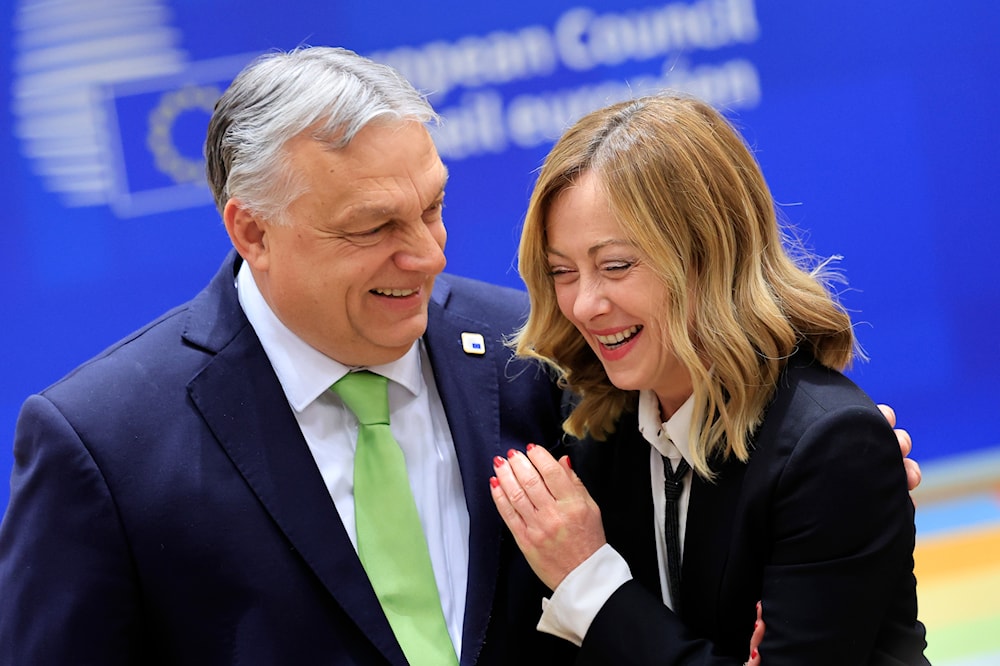Hungary, Italy PMs to meet in Rome, discuss EU elections
Both Orban and Meloni agree that the victory of right-wing parties in the upcoming EU legislative elections need to be reflected in the candidate selections for the top positions in the European Council and Commission.
-

Hungary's Prime Minister Viktor Orban, left, speaks with Italy's Premier Giorgia Meloni during a round table meeting at an EU Summit in Brussels, on March 21, 2024. (AP)
Two prime ministers – Giorgia Meloni of Italy, and Viktor Orban of Hungary – will meet in Rome on Monday before the EU summit where the bloc's leaders are anticipated to choose the front-runners for important leadership roles.
Both Orban and Meloni agree that the victory of right-wing parties in the upcoming EU legislative elections needs to be reflected in the candidate selections for the top positions in the European Council and Commission.
Orban has already declared the intentions of his Fidesz party, which garnered 11 of the 21 seats in the European Parliament, to merge with the European Conservatives and Reformists (ECR) group in the assembly, chaired by Meloni's party.
On June 6-9, Europeans will head to polls to vote for the new #EUParliament, one of the most vital legislative bodies of the #EuropeanUnion.
— Al Mayadeen English (@MayadeenEnglish) June 4, 2024
The vote, the first since #Brexit, will have its effects of course on the war in #Ukraine and other major issues for #Europe. pic.twitter.com/T2t8Nmk8ry
It is reported that Meloni is hesitant about the prospect, as some members of the ECR group are opposed to accepting the Hungarian party.
Deciding the leadership of the EU Commission
Over 360 million people across the EU's 27 nations were eligible to vote over four days in elections that will shape the EU's direction for the next five years. The vote came amid challenges such as the Ukraine war, global trade tensions, a climate emergency, and the potential for another Trump presidency.
The new parliament will play a crucial role in deciding the leadership of the European Commission, with increasingly unpopular German conservative Ursula von der Leyen seeking a second term.
Germany saw its highest turnout since 1979 at 66%, yet this did not spare Chancellor Scholz from a poor showing. His Social Democrats, at 14%, were outpaced by the far-right AfD at 16-16.5% and significantly lagged behind the conservative CDU-CSU bloc's 29.5%.
In Austria, the far-right Freedom Party led the count for the first time in a nationwide ballot. Migration policy and climate change were key issues for voters.
In the Netherlands, the far-right Freedom Party of Geert Wilders came second with 17.7%, trailing the Green-Labour coalition led by Frans Timmermans.
Meloni's support is being sought by both von der Leyen for her second mandate and by Le Pen and Hungarian Prime Minister Viktor Orban, who aim to form a far-right supergroup in parliament.

 2 Min Read
2 Min Read








